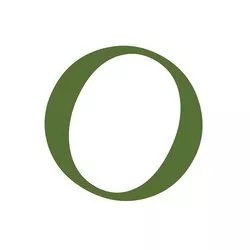- within Media, Telecoms, IT, Entertainment, Law Department Performance, Litigation and Mediation & Arbitration topic(s)
- with readers working within the Business & Consumer Services and Telecomms industries
Inside the Northern Territory intervention
In the article, the authors of the 'Little Children Are Sacred' report say successive governments used their report to justify an authoritarian regime. This regime was popularly known as the Northern Territory intervention. This article was first published in the print edition of The Saturday Paper on June 25, 2022 as "End of the intervention".
What was the Northern Territory intervention?
In 2007, John Howard's Liberal National Party Coalition federal government passed into effect the Northern Territory National Emergency Response. This was with bipartisan support from the Australian Labor Party, led by Kevin Rudd. One notable effect was the use of the Army, among other officials, to "impose a renewed suite of race-based controls on Aboriginal people and their lands."
Justifying the intervention under the guise of "protecting children" Howard succeeded in suspending the 1975 Racial Discrimination Act. This sort of language has been in use to legitimise interventions into the lives of Indigenous people for a long time. In particular, including the removal of Aboriginal children from their families.
The controls included:
- increasing police and their powers;
- removing traditional cultural considerations from judicial-criminal proceedings.
- taking over the management of 73 prescribed communities;
- compulsory acquisition of townships with 5 year leases;
- banning alcohol and pornography;
- the quarantining of 50% of welfare income into the new Basics Card;
- the quashing of the permits for entry system;
- ADF health checks of Aboriginal children;
- replacing Community Development Employment Projects with Work for the Dole;
- suspension of the Racial Discrimination Act.
The intervention breached the UN's Convention on the Rights of the Child, as well as its Declaration on the Rights of Indigenous Peoples.
How did the Northern Territory intervention come about?
High-profile think tanks, some academics and an eagerly compliant media supported Howard and his Indigenous Affairs ministers, first Amanda Vanstone and then Mal Brough, who spent most of their term of Government sowing the seeds for their authoritative takeover. This included backgrounding journalists with manufactured evidence presenting a distorted view of the culpability of Aboriginal people.
Howard and Brough:
- defunded Indigenous community-controlled organisations,
- diluted native title to favour mining interests
- and even abolished the Aboriginal and Torres Strait Islander Commission (ATSIC).This national representative body was a statutory authority so deleting it was no small step.
Lateline, an unlikely facilitator
Next, Howard and other conservative interests, aided and abetted by the ABC's Lateline program, then focused on undermining Aboriginal men. Given the current obsession on the right wing of politics in framing the ABC as being "woke" and biased towards the left, this conspiracy seems remarkable.
To start the whole sorry process, in 2006, Lateline interviewed NT prosecutor Nanette Rogers. She told graphic stories of child sexual assault allegations that she was aware of from being in Territory courts for over ten years. However, she revealed nothing new. There had been reporting on these problems, particularly authored by First Nations women, for many years.
Lateline doubled down on its agendum, filing multiple pieces. Almost every radio station, news channel and print publication revisited, reinterpreted and rewrote their version of the story.
The narrative was that every Northern Territory Aboriginal man:
- abused children including sexual exploitation
- was addicted to alcohol,
- consumed pornography
- and acted violently towards their family.
Every television current affairs program picked up the narrative and ran with it.
Mutitjulu becomes the eye of the storm
Lateline's run of stories culminated with a piece that slammed the community of Mutitjulu. A tiny township beside Uluru, the allegations said that it harboured sexual predators and that Aboriginal children were part of an inter-community sexual slave trade. Allegations included ones that senior Aboriginal lore-men would have sex with minors and pay them with petrol to sniff. The community was said to share culpability in enabling this. At the time, these were sensational allegations.
The next day, NT chief minister Clare Martin declared that her government would commission an inquiry into the protection of Aboriginal children. She appointed Patricia Anderson, a distinguished Alywarre woman and Lowitja Institute chairperson, to the inquiry. In addition she brought in prominent QC Rex Wild.
The final report, entitled "Ampe Akelyernemane Meke Mekarle: Little Children Are Sacred", took almost a year to complete. Over 300 pages long and with 97 recommendation, it enabled Howard to announce his intervention.
Anderson says that the Governments cherry-picked out of the report to justify the intervention. To this day, no politician ever contacted any of the authors to discuss the report's conclusions.
Stewart O'Connell regrets how his work went to justify the intervention
O'Brien Solicitors' Stewart O'Connell, now specialises in defamation and suing authorities such as police for illegal behaviour. However, at the time, he was the senior policy officer for the board of inquiry. He feels the report was misused:
"We told these people that we spoke to, who were so brave in talking about their experiences and giving us their ideas, that this time, there's going to be some change, because that's what we believed. I feel so angry to be a tool in all of these people's betrayal. And that is the primary reason why I felt like I had to leave the Northern Territory. How could I tell these people that it's okay to talk to us? That this is a safe space and that nothing bad is going to come of this, just good, only for them to get the decimation of the intervention?"
Allegations of organized pedophilia unproven
O'Connell says the inquiry came about due to allegations of pedophile rings operating in communities.
"Well, we travelled to more than 50 communities and we never found any evidence of any pedophile rings."
In parallel, there was an 18 month investigation by the Australian Crime Commission. However, while it found evidence of child abuse, there was no evidence of organised paedophilia. O'Connell said the board of inquiry found evidence of white men abusing children and introducing pornography into communities.
"We did find some examples of men going into these communities, all of whom were non-Indigenous, getting themselves into positions of power and using that as a base to satisfy their sexual predilections."
While the final report recognised the urgency for action, it noted there was no widespread or systemic problem. O'Connell reiterates that:
"child abuse was historically non-existent amongst Aboriginal families. The abuse we are seeing today is, among many things, symptomatic of sustained deprivation, trauma and the loss of cultural strength induced by colonisation".
Authors choice to focus on urgency results in triggering intervention
In hindsight, O'Connell regrets how the report was drafted. They were cognizant of how past reports ended up on the shelf and that led to their choice of wording. He says:
"I remember sitting down with Rex [Wild] and Pat [Anderson], and the discussion was, how do we avoid our report becoming another report that sits on the shelf gathering dust?" O'Connell says. "We thought we were being clever at the time by saying how 'urgent' this is, how much of an 'emergency' this is.
"We did this because we thought that was the only way that we could get the government to act. Now we know that they were just looking for a political opportunity to do what they wanted to do. And we unwittingly gave it to them, by saying that this was an emergency."
After the report's completion, O'Connell was on vacation. It was only through a newspaper artricle that he learned of the intervention. In conclusion, he says:
"From the very beginning of colonisation, there's been this thought, or this mindset amongst the colonisers, that we're dealing with inferior people here, savages, and there's only one way to deal with them, and that is to impose our will upon them. The intervention, you know, is just a further example of that mindset. It's not just that we can do bad things to Aboriginal people, but we should do bad things to Aboriginal people."


